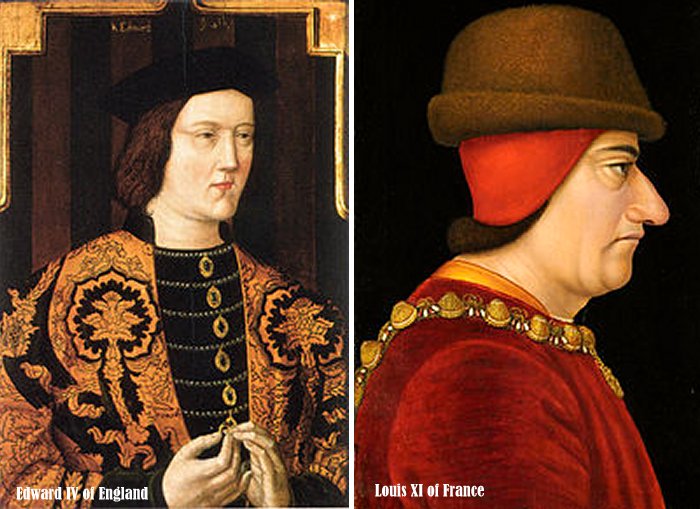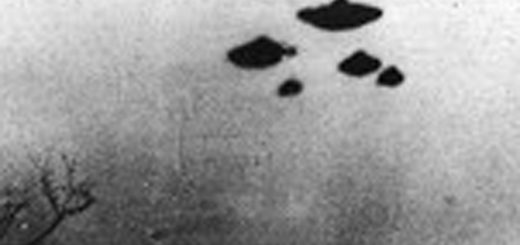On This Day In History: Treaty Of Picquigny – Negotiations Between England And France – On Aug 29, 1475
 On August 29, 1475, the Treaty of Picquigny was signed that ended a brief war between England and France.
On August 29, 1475, the Treaty of Picquigny was signed that ended a brief war between England and France.
It was an important peace treaty that followed from an invasion of France by Edward IV of England in alliance with Burgundy and Brittany. It left Louis XI of France free to deal with the threat posed by Charles the Bold, Duke of Burgundy.
Edward IV had invaded France in alliance with Charles the Bold, Duke of Burgundy, landing with a force of around 16,000 troops in June. The plan was to march through Burgundian territory to Reims. However Charles failed to provide the support he had promised, and refused to allow the English to enter Burgundian-controlled towns.
Louis then sent Edward word that he was willing to offer more than Edward’s allies could. He induced Edward to negotiate a settlement. The two negotiated by meeting on a specially-made bridge with a wooden grill-barrier between the sides, at Picquigny, just outside Amiens.
The negotiations led to an agreement that the two kings agreed to a seven-year truce and free-trade between the two countries. Louis XI was to pay Edward IV 75,000 crowns upfront, essentially a bribe to return to England and not take up arms to pursue his claim to the French throne. He would then receive a yearly pension thereafter of 50,000 crowns. Also the King of France was to ransom the deposed Queen Margaret of Anjou, who was in Edward’s custody, with 50,000 crowns. It also included pensions to many of Edward’s lords.
There were also several other provisions of this treaty, with which some people disagreed.
Philippe de Commines, the chronicler , who says that Richard, Duke of Gloucester (later Richard III), was opposed to the treaty, considering it dishonorable. Also English envoy to Spain – Louis de Bretaylle – confided that this one shady deal took away the honour of all Edward’s previous military victories.



 Creators of mankind
Creators of mankind Description of “Tall white aliens”
Description of “Tall white aliens” Where they came from?
Where they came from? About hostile civilizations
About hostile civilizations The war for the Earth
The war for the Earth “Tall white aliens” about eternal life
“Tall white aliens” about eternal life Video: “Nordic aliens”
Video: “Nordic aliens” Aliens
Aliens Alien encounters
Alien encounters The aliens base
The aliens base UFO
UFO Technology UFO
Technology UFO Underground civilization
Underground civilization Ancient alien artifacts
Ancient alien artifacts Military and UFO
Military and UFO Mysteries and hypotheses
Mysteries and hypotheses Scientific facts
Scientific facts


















